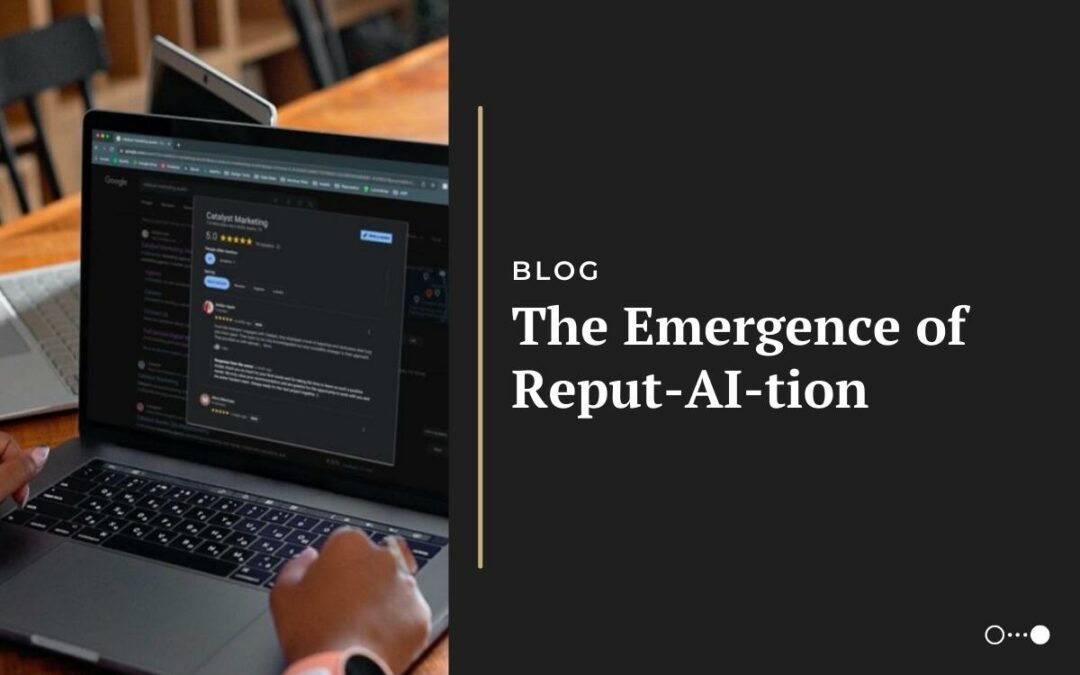It’s no surprise that the introduction of artificial intelligence (AI) has quickly taken the world of digital marketing by storm throughout the past year and a half. As AI is being utilized more in various ways and industries, we’ve faced unique hurdles (and also taken heavy sighs of relief) when it comes to day-to-day workloads. While several marketing tools and platforms have already begun to roll out AI-based services, it’s important to do research before jumping in head-first — especially when it comes to customer-facing services like reputation management.
The Nature of Reputation Management
Reputation management is not a one-size-fits-all service. It can vary wildly between different operators, communities, and marketing agencies. Some businesses see an influx of tens to hundreds of reviews a day, often incredibly similar to one another; in instances like these, a marketing agency might rely on a template or list of pre-written responses. Others experience varying numbers of reviews/surveys each day, so each situation and review needs to be handled individually. As AI becomes more integrated into marketing, we naturally tend to wonder: could responses be timelier if I could prompt a response without thinking of it on my own?
Artificial Replies vs. Authenticity
Many reputation management platforms have already begun incorporating an AI-generation button or script into their response dashboards. These tools typically utilize either ChatGPT or Google’s engines as the starting point for content creation. But are these generated responses on brand? Do they explore the review in a natural way while providing solutions or resources that are relevant to the scenario itself?
One common complaint about AI content is that the wording can feel stale or impersonal. AI tools also typically don’t proof or fact-check. As a result, it’s important to remember that whatever AI tool you’re using, for reputation or otherwise, it should be the start of something as opposed to being the final result.

Maintaining a consistent, professional brand voice for your client’s reputation is essential, and AI responses (at least for now!) are still only based on the content you provide — typically, the overall sentiment and rating provided in a review. Even if personal details are populated into the response, the fact remains that those reading your responses will be able to tell if your response comes from a human or artificial intelligence — a choice that can quickly build or break trust with your residents and prospects.
Let AI Assist You
Artificial intelligence doesn’t need to be scary or intimidating. In fact, we suggest letting it do what it does best — helping you get started. AI-generated content can build a first-draft response that fully encapsulates every sentence of the review you’re tackling. From there, it can be modified piece by piece to your satisfaction and maintain a strong focus on improving a negative sentiment or reinforcing a positive one. Look for small details that might point out the obvious. In our experience, AI responses tend to begin with a “Greetings…” or a “Dear _____” – a too-formal element we almost immediately remove during the editing process.
As we continue to see these tools evolve, they will likely involve more features and ways to incorporate relevant data, ensuring that when you click that “Generate” button, you see something your clients can be proud to stand behind. For the time being, we’re proud to weave innovation into our processes and represent our clients well with the perfect combination of powerful AI insights and customized, on-brand messaging.

